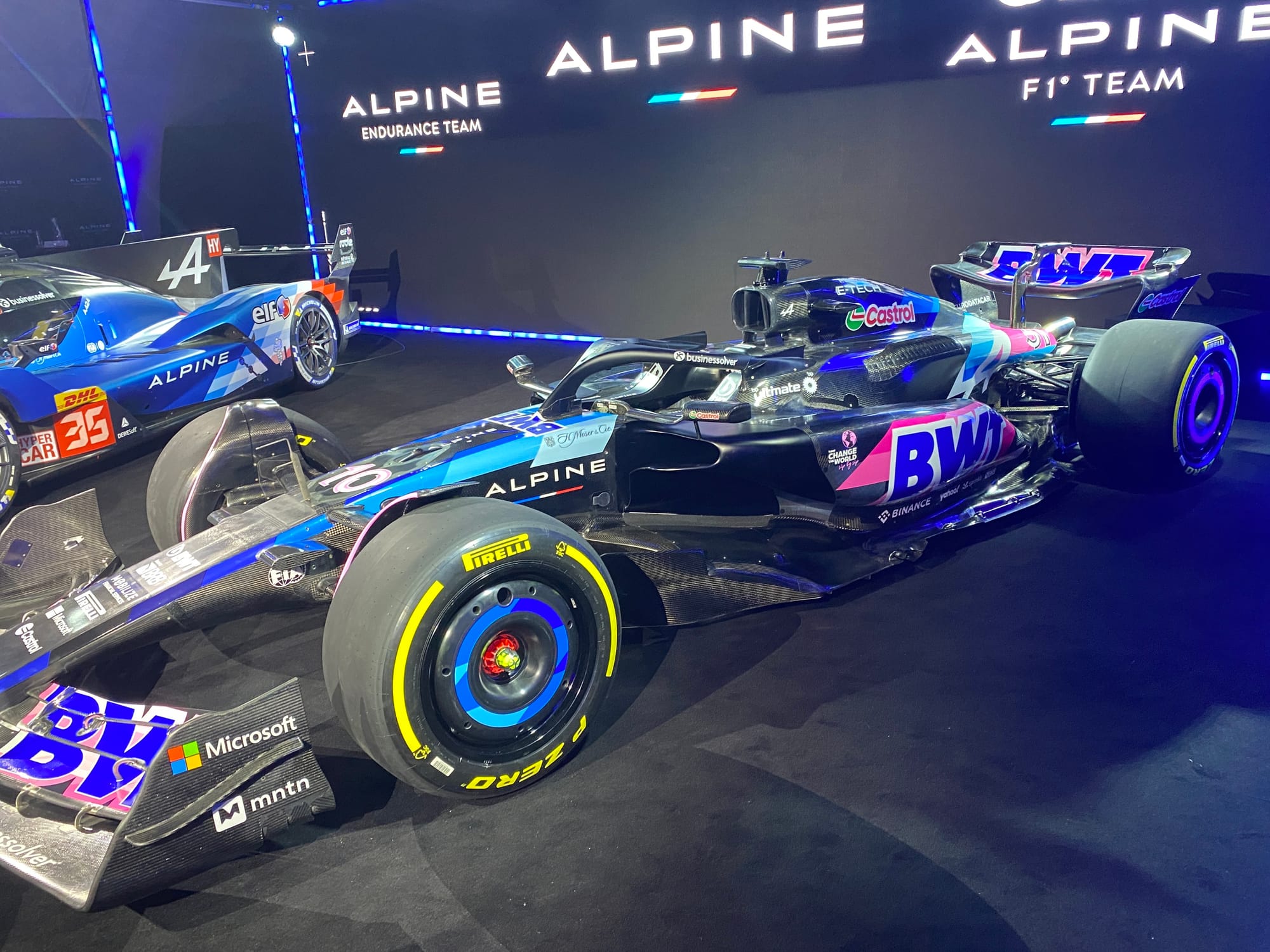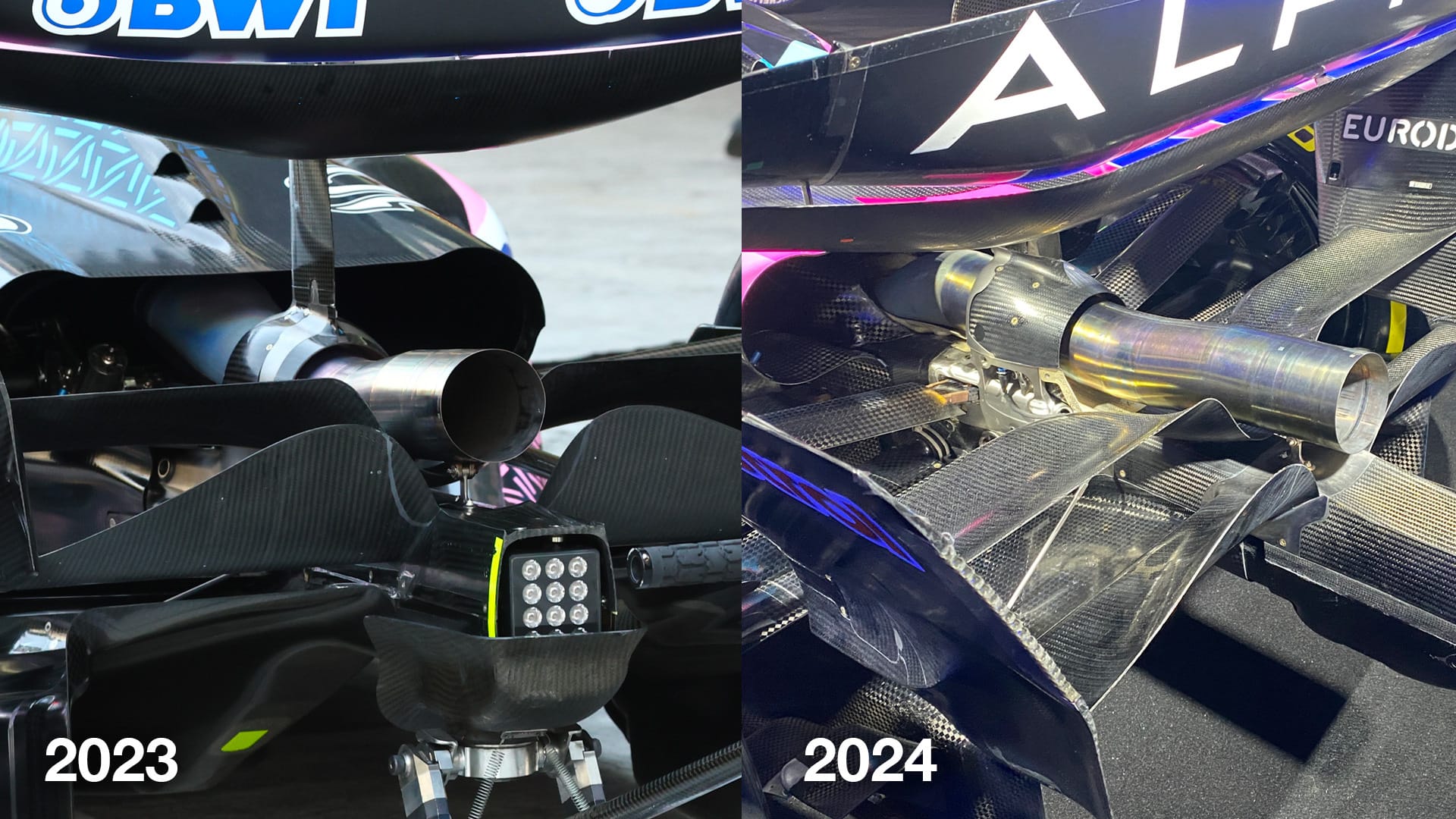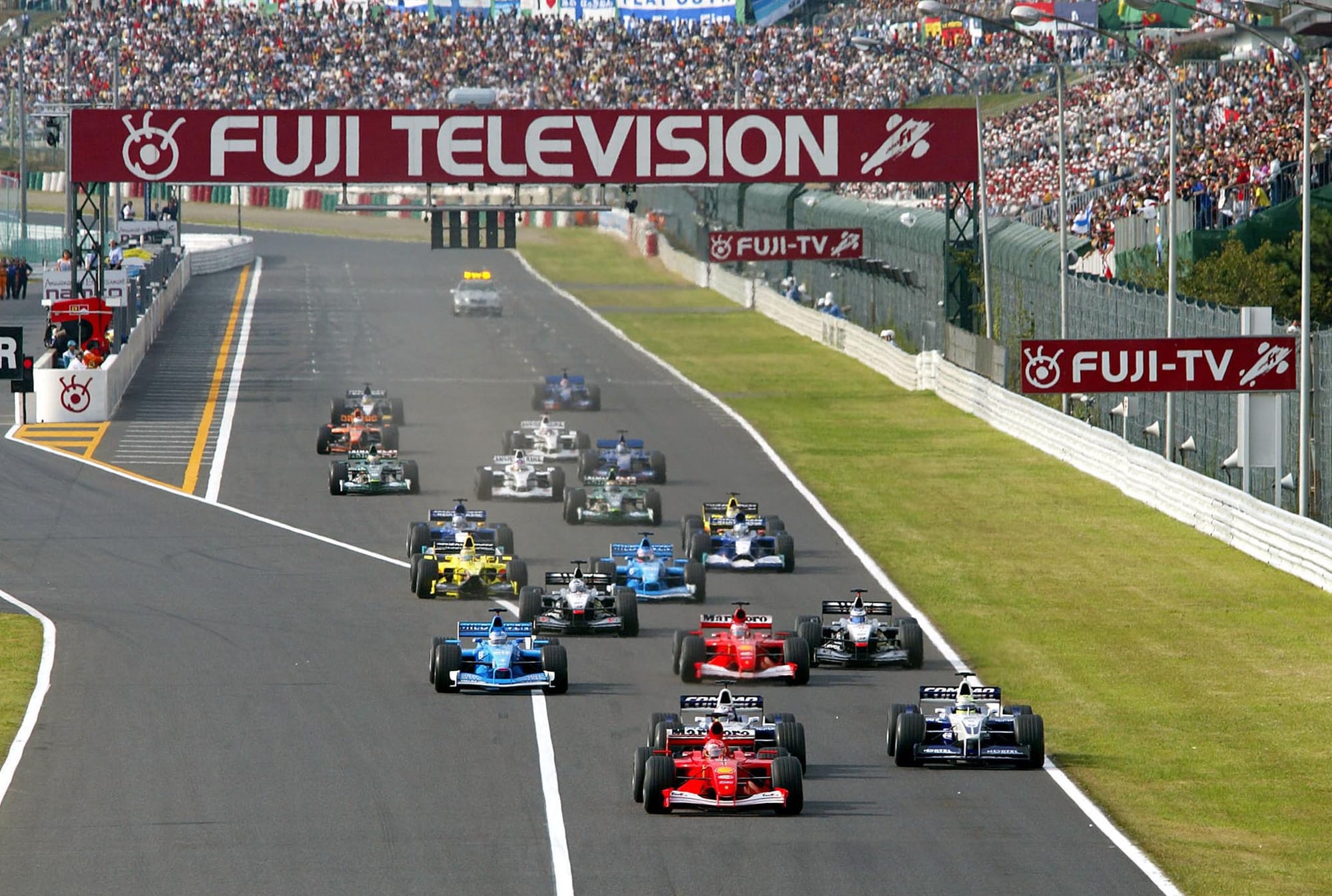Up Next

If Formula 1's 2024 launch season has a theme so far, it’s not so much some new technical innovations but the lack of something: colour.
Exposed carbonfibre has been a big feature of every 2024 launch so far.
With every gramme of weight having to justify itself in the performance it brings, and the challenge of bringing the hybrid cars down to the weight limit, teams are becoming increasingly parsimonious with the paint or cast vinyl wraps.
The 1kg or so of weight that a full-colour scheme will add to the car equates to an increase of around 0.03s to the car's laptime, if we are talking about a car on the weight limit before paint. Or that's 1.8s of race time over a 60-lap race. But even for a car which is under the weight limit, that’s weight which is not adding performance.
In the third year of this regulation set most teams have now mastered how to get down to the weight limit. But for those able to get beneath it, simply adding ballast isn’t good enough.

Ballast doesn’t add to performance in this equation and paint or wrapping is effectively just ballast.
Teams now want any spare weight to be used for something which will add performance.
Alpine technical director Matt Harman gave a great example when noting that the A524’s exhaust outlet now runs straight, without any pressure-reducing curvature in it.

To do this, the exhaust needs to be run through the upper suspension carrier. That carrier will have needed to have been made heavier to retain the same structural strength.
But with weight savings made elsewhere in the car, it’s not excess weight – and in giving the exhaust outlet a better route, it’s adding power unit performance. By a tiny amount, but still. Every marginal gain is being chased. And when you add lots of marginal gains up it can make a significant difference.
So it’s as if the few colours being used are now just to suggest a livery rather than spelling it out. But it’s dull. Colour and noise have always been part of the drama of racing.
The hybrids have already lost us a lot of the noise. Now we’re losing colour too.

As with anything in F1, if it’s deemed undesirable but brings performance the only way to be rid of it is by regulation.
Regulating colour is a bit of a challenge and conjures up images of colours being defined in regulations within a set range of light frequencies!
But surely there is a way around this most arcane problem? It might not even be necessary to demand that the carbon be painted (or wrapped). Back in 2013, Prodrive developed colourised carbon fibre.
Anyway, carbon black: less of this sort of thing please F1 teams.




